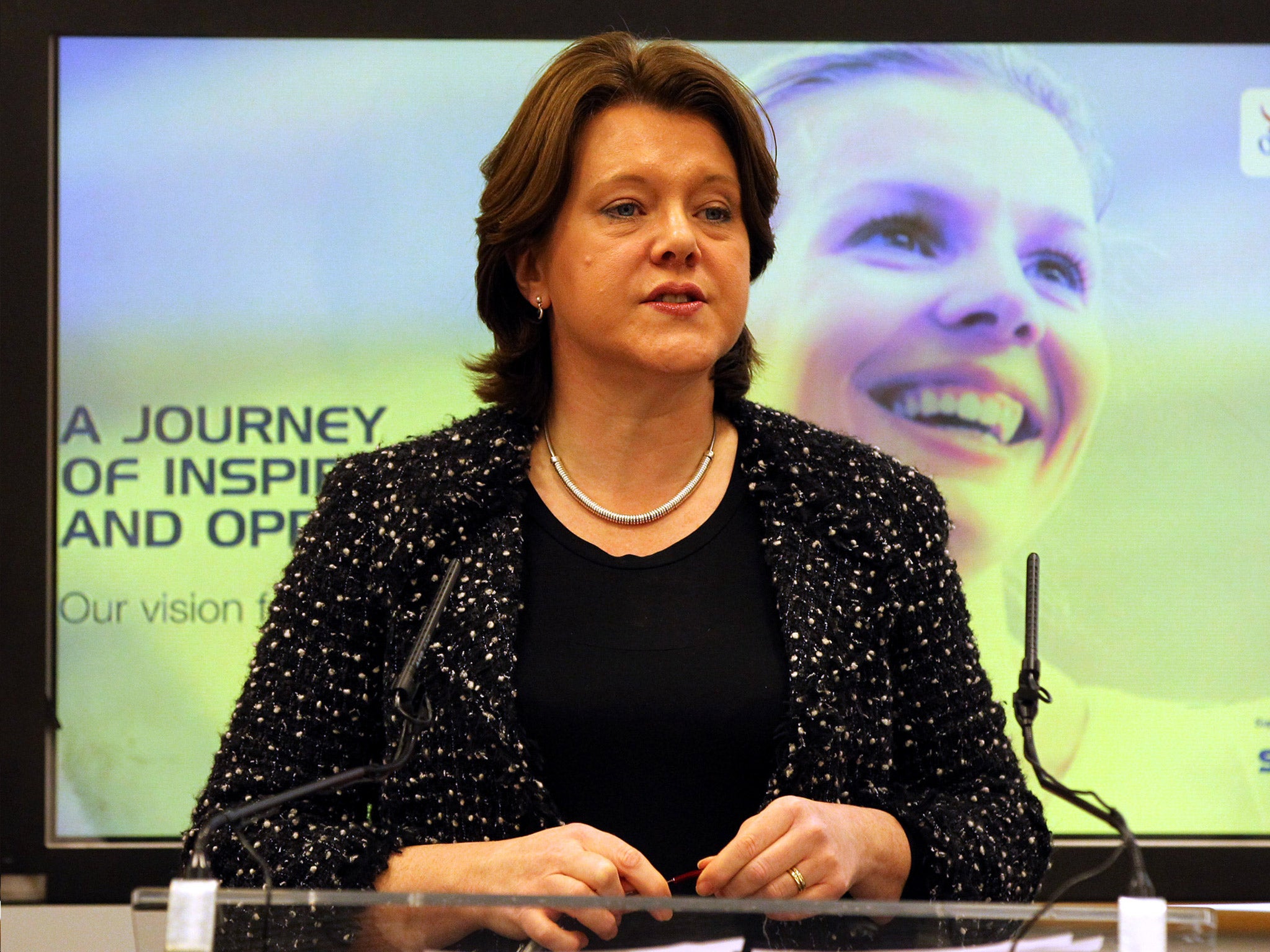Lack of women at board level in sport 'a massive missed opportunity'

Your support helps us to tell the story
From reproductive rights to climate change to Big Tech, The Independent is on the ground when the story is developing. Whether it's investigating the financials of Elon Musk's pro-Trump PAC or producing our latest documentary, 'The A Word', which shines a light on the American women fighting for reproductive rights, we know how important it is to parse out the facts from the messaging.
At such a critical moment in US history, we need reporters on the ground. Your donation allows us to keep sending journalists to speak to both sides of the story.
The Independent is trusted by Americans across the entire political spectrum. And unlike many other quality news outlets, we choose not to lock Americans out of our reporting and analysis with paywalls. We believe quality journalism should be available to everyone, paid for by those who can afford it.
Your support makes all the difference.British Cycling is one of five national sporting governing bodies without a single woman on its board. Of the 46 national governing bodies (NGBs) that receive money from Sport England, British Cycling, England Squash and Racquetball, the British Wrestling Association, Goalball UK and GB Wheelchair Rugby still have all-male boards.
In many governing bodies, there are women on the board, but a tiny proportion in leadership positions. The British Judo Association, for example, has two women on its board, but only 4 per cent of all leadership roles are taken by women.
Despite the stellar performance of female athletes such as Laura Trott and Gemma Gibbons, senior sporting figures say the bodies that govern their sports are failing to give women a strong enough voice.
Leora Hanser, director of campaigns at the Women's Sport and Fitness Foundation (WSFF), said: "It is really disappointing that after the Olympics last year, WSFF's research found that several sports governing bodies still don't have a single woman on their board. A lack of diversity means that they are missing out on areas including participation, investment and media profile."
Things are getting better, but slowly. The proportion of female board members has risen from 20 per cent in 2010 to 22 per cent, and the number of NGBs without any women on their board has dropped from 10 in 2010 to five.
The Government has given NGBs until 2017 to make sure at least a quarter of their board members are women, but it has not yet succeeded in changing the situation. Only 15 of the 49 NGBs funded by Sport England meet this target.
The former Paralympic athlete Baroness Tanni Grey-Thompson said: "I struggle to understand why some governing bodies are holding out. They're missing out on a massive opportunity. I'm tired of hearing things like 'there's not enough good women in sport'. We all know that's nonsense."
Maria Miller, Secretary of State for Culture, Media and Sport and minister for women, said: "I want to see much better female representation. Governing bodies that are funded by the taxpayer are expected to have boards that are 25 per cent women by 2017 or put their funding at risk."
The former England cricketer Rachael Heyhoe Flint, who is one of two women on the board of the England and Wales Cricketing Board, said: "I can't see any reason not to have a woman provided they merit a place. If boards said 'we won't have anyone of a certain ethnicity or nationality' that would be illegal."
British Cycling launched a strategy in March pledging to inspire a million more women cycling by 2020 – and its mission statement said: "We know there is a gender imbalance in our democratic structures and we are working to change this. Our intention is to create at least 25 per cent female representation at board level over the next four-year cycle."
David Pond, chief executive of GB Wheelchair Rugby, said: "We look for the best people to lead our sport, and it so happens that of the three individuals who make up our executive team, two are women." A spokesman for British Judo said: "British Judo is fully committed to reaching the board equity target before the timelines stated by Sport England and UK Sport."
The British Wrestling Association and Goalball UK did not respond to requests for comment.
Join our commenting forum
Join thought-provoking conversations, follow other Independent readers and see their replies
Comments